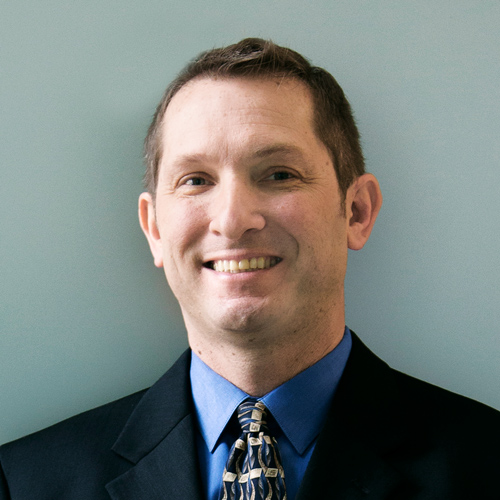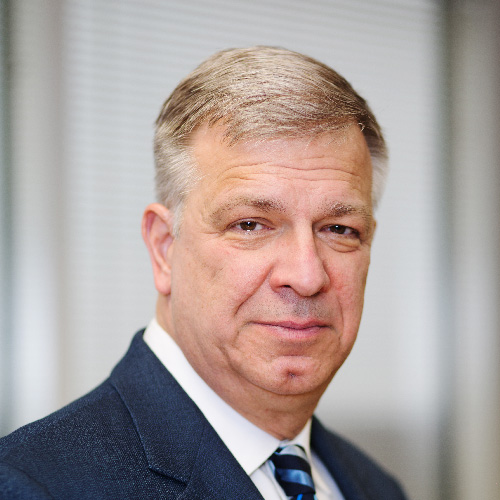Simply by swapping laundry detergents at Pinnacle Entertainment’s casino and gaming resorts four years ago, Scott Steinbach and his team helped the company save more than 5 million gallons of water and roughly $100,000. “Per year,” adds Steinbach from his office in Las Vegas. “And it smells better.”
As the corporate director of facilities, Steinbach ensures that each of the company’s 15 hospitality and entertainment destinations in eight states operate at the highest level.
“My role is to provide strategic leadership and management to our property and facilities departments that’s aligned with our goals to make Pinnacle Entertainment the best casino entertainment company in the world,” Steinbach says. “I’m the shepherd for energy management at the company, which is all about reducing our energy usage and, obviously, our costs. Another thing I do is leverage how much we spend on facility goods and services.”
Additionally, Steinbach oversees infrastructural facility procedures such as maintenance projects and equipment repair. His leadership style is focused on innovation, collaboration, and mentoring, as he encourages his team to delve deeper in order to continually improve outcomes.
“It’s really all about identifying where we need to get better and then specifically how to get better,” he says.
With an eye on this, Six Sigma methodologies play a key role in developing and materializing goals. “It’s a blueprint for how to improve,” Steinbach explains. “My entire team has gone through Six Sigma training. We apply the methodology as a group and then break up into smaller teams. Some of those people may have specific strengths, and we build out standard operating procedures. From there, we just have a relentless focus on execution.”
The Japanese business philosophy of kaizen, which emphasizes the notion that continual micro-improvements will coalesce into remarkable results, also helps Steinbach’s team conceptually map out and implement budding ideas from team members.
Similarly, eliminating small, potentially unnoticed obstacles is paramount to Steinbach’s approach and allows the facility operations process to happen as efficiently and sustainably as possible. Following a recent meeting with Pinnacle Entertainment’s food and beverage manager, Steinbach and his team formulated a plan to streamline the service order system for kitchen employees dealing with broken equipment. Soon, any team member—a line cook, runner, or the chef—will be able to generate equipment orders via telephone by referencing large photographs of selected parts with code numbers. This will eliminate subtle staff language barriers, as well as the need for food service employees to know specific names of obscure mechanical components. “If we can better respond to a service order, whether it’s food and beverage or in the hotel, and we can affect a repair on a piece of equipment, then that means there’s going to be less impact to revenue, and our chef is going to be able to produce a meal that’s that much better,” Steinbach says.
Factoring more technology into the equation is equally important to Steinbach. “Right now, we’re in the midst of a technological revolution just like we were during the Industrial Revolution. The future of facilities is all about apps,” Steinbach explains.
Whereas in the past, a clunky system of radio dispatches, inventory logbooks, and specialized employees were necessary for even simple tasks, Steinbach’s team is now empowered to address situations immediately as they occur. “Our property manager can pull out his iPhone, and he can control the entire HVAC system from literally anywhere in the building with an app,” Stein-bach says.” And as the technology for building automation systems becomes increasingly wireless, he observes, upfront costs are becoming significantly lower because businesses don’t need to purchase cabling or spend extra on associated installation expenses.
Steinbach and his team are even incorporating unexpected sources of technology into the work environment, such as the humble vending machine. “We set up a ghost credit card with a cellular repeater in it so when a team member needs a part like batteries, duct tape, leather gloves, or light bulbs, they can use the vending machine,” he says. “They type in their ID so we know who purchased what and the amount, and the vending machine automatically contacts our MRO supplier in the process.”
When items are depleted, the supplier automatically arrives with a refill order. In addition to saving time, this system also gives the facilities department the added benefit of pre-negotiating costs.
His team also utilizes a building automation system that makes use of multiple, open-source apps, and eliminates the need for third-party vendors seeking to profit from licensing and support technicalities, which further reduces unseen costs. Pinnacle Entertainment’s own team members can now perform the work that was previously outsourced due to the constraints of proprietary software from other companies.
Before becoming involved in the facilities and hospitality management sector, Steinbach cut his chops as a journeyman nuclear weapons technician for the United States Air Force during the height of the Cold War. There, he developed expertise in the maintenance and repair of intricate systems. Later, as an undergraduate studying liberal arts and hotel administration, he read Jim Collins’s book Good to Great, which instilled in him the importance of developing and managing sustainable systems or processes instead of focusing on individual problems.
After deciding he wasn’t going to make the air force a career, Steinbach—with help from his wife—secured an interview for a position at The Mirage in Las Vegas. He then made the leap to facility management in the hospitality sector. Upon earning several promotions, he was recruited from MGM Resorts to join Pinnacle Entertainment. It may have been somewhat of an unconventional blueprint, but it is also one that has more than served Steinbach well. With small changes leading to big results, the future is bright for Pinnacle Entertainment.


